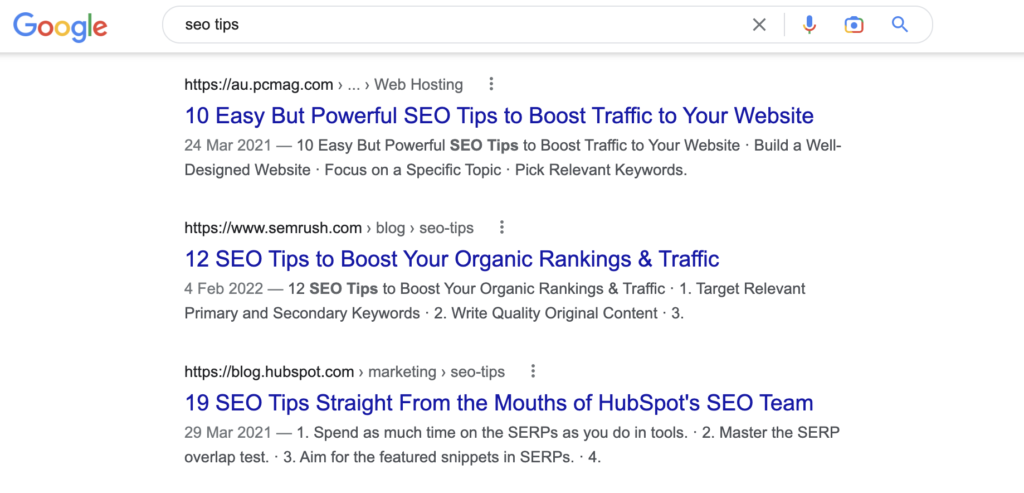Digital Marketing Reads – Volume 22
Here’s the latest instalment of Digital Marketing Reads, a roundup of some of the more interesting articles we’ve read lately in the digital marketing world.
What to do when the wrong page ranks for a keyword
You know what search engine optimisation (SEO) is, but have you ever heard of search engine de-optimisation?
You just might need to de-optimise a page that’s unintentionally ranking for a keyword that you meant for another (better, more relevant, higher converting) page on your site to rank for. This can happen sometimes when you have two pages with overlapping or similar content that use some of the same keywords.
Ideally you don’t want pages within your site to compete over the same keyword, so if you find the wrong page ranking for a keyword, there are a few things you can do to de-optimise it while also optimising the correct page. Most importantly: remove all instances of the keyword from the wrong page! But also: focus on adding internal links to the correct page so that Google gets the idea that this is the page that should be ranking.
Google Answers How Long It Takes To Recover From Algorithmic Penalty
Spoiler alert: Google doesn’t really answer the question (after all, the algorithm will always be a mysterious and ever-changing thing).
But the short of it is: if your site is penalised for low quality or spammy content, it could take quite awhile for Google to reevaluate and drop your site back into the pool of search results. As we know, it is very normal for it to take several months for Google to find and rank new content. So common sense would tell you that it would take * at least* as long to recover from an algorithm penalty, probably even longer.
The moral of the story? Keep publishing quality content consistently. There are no shortcuts or quick fixes when it comes to Google search rankings!

Google Recommends Multiple Date Signals On Webpages
Have you ever noticed the date that prefaces many of the search results that come up on Google? Y’know, the date that the ranked article was published or last updated? (see screenshot above for example)
If your site uses WordPress, then any post you’ve published on your site is likely to show the publish date in Google search results (go on, check and see for yourself!).
But if one of your articles is showing the wrong date? Or what if it was published several years ago and people opt not to click onto it because they subconsciously think it contains old, outdated information?
There are a few things you can do to update the date of all of your website pages so that a). They appear correctly in search results, and b). They are more recent. This article shares a few tags you can add to your webpage code that will signal to Google the correct date of publishing.

Leave a comment